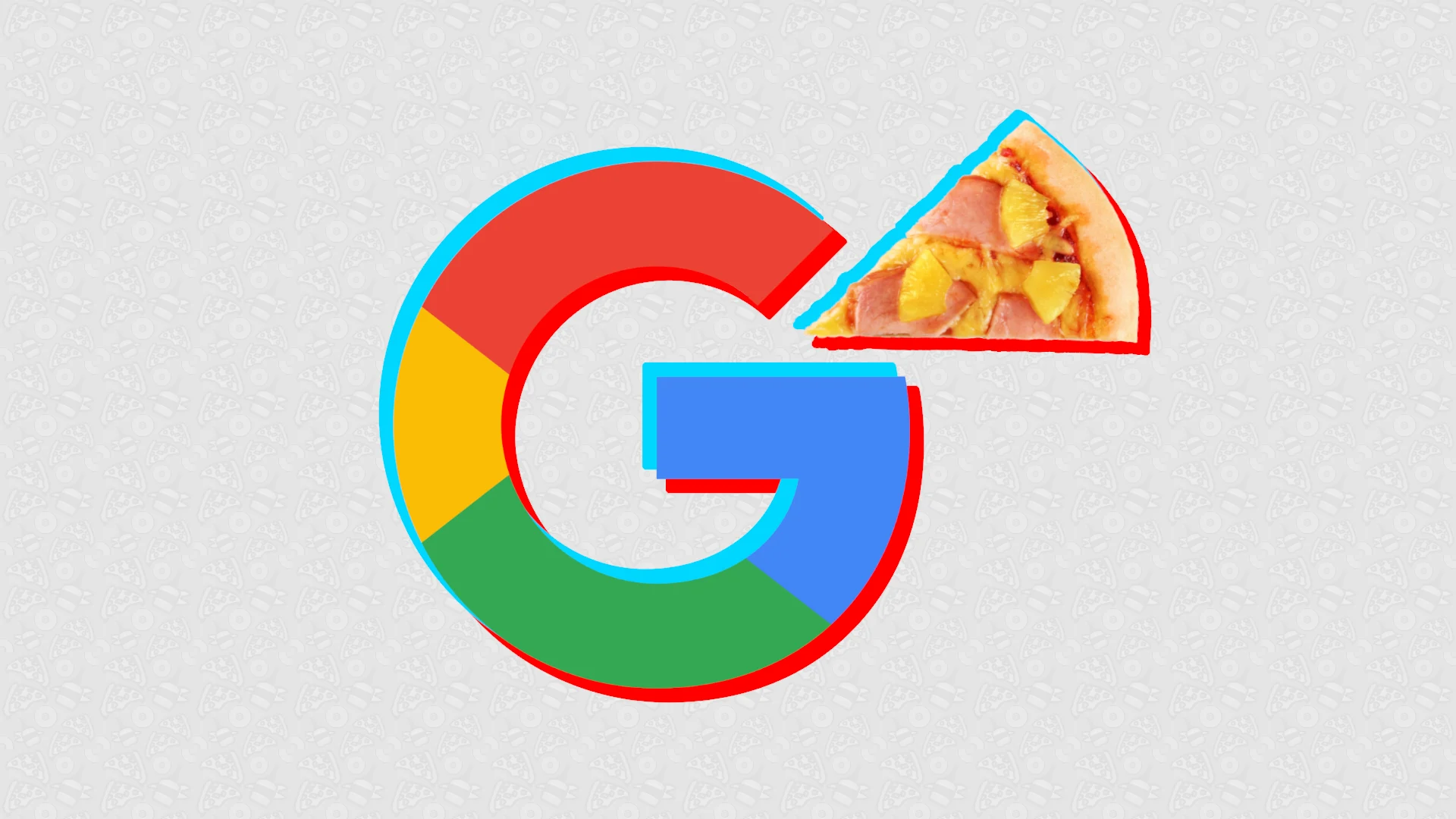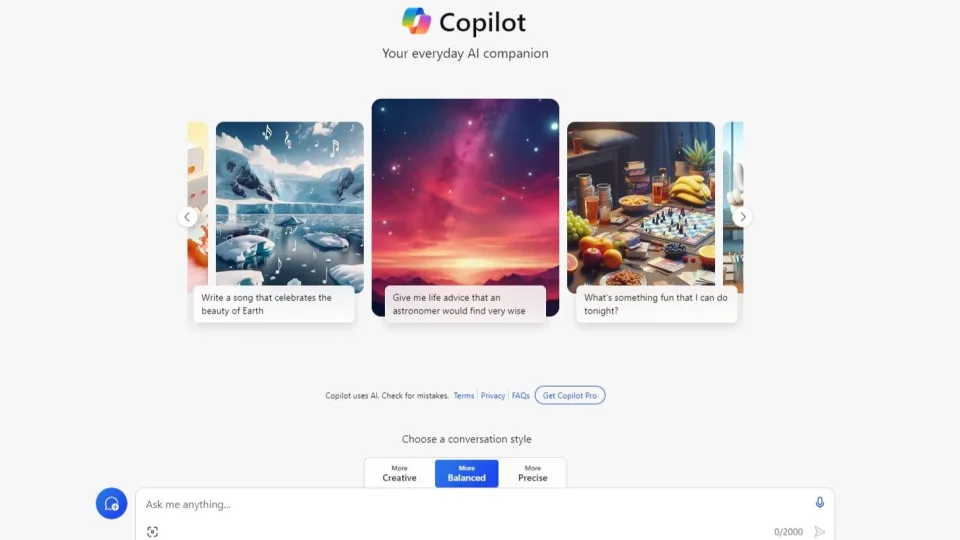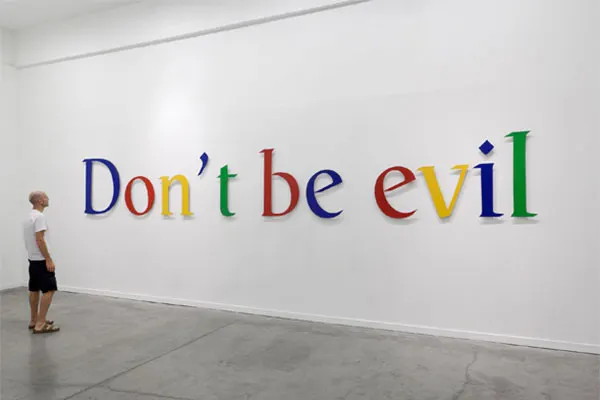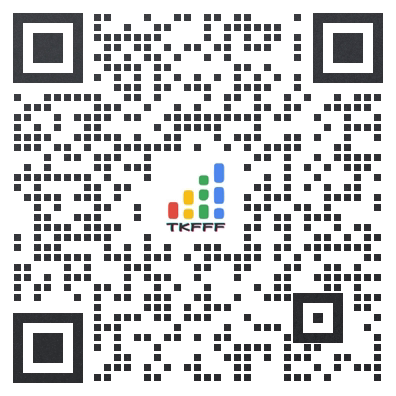Does Google AI have TikTok brain? Search’s hottest new feature puts glue on the menu

Google logo in style of TikTok logo with pizza slice.
You have TikTok brain. Don’t say you don’t because you do.
The year is 2024, and the only way most of us can absorb fresh information is if it’s fed to us in tightly packed, bite-size doses, positioned atop Subway Surfers gameplay, and presented by a teen who thinks the phrase “Mullet or Broccoli” isn’t a great name for an Irish bar but instructions for their hairdresser to follow.
But does Google’s new Search Generative Experience (SGE) have TikTok brain too? You’d be forgiven for thinking it has spent plenty of time on the platform after Google’s newly launched AI Overview feature began counting glue as one of your five a day. And what part of the suggestion that whipping up a fresh batch of chlorine gas in your washing machine is a great way to keep your clothes smelling fresh doesn’t sound like the next TikTok TradWife trend?
AI Overview seems horrendously broken unless you factor in TikTok, but once you do it’s just any old day ending in a ‘Y.’ After all, TikTok, the internet’s ground zero for doing dumb things for clout, has previously been responsible for everything from re-popularizing the fun of choking yourself to death on spoonfuls of cinnamon to marinating chicken in NyQuil for a nice home-cooked meal with a side of seizures.
Yes, AI Overview is something we can all poke fun at and laugh over now. We can even avoid it altogether, thanks to smarty pants Tom’s Hardware Editor-in-Chief Avram Piltch. But make no bones about it, dear reader. AI is here to stay, and Google’s AI Overview is just the tip of the iceberg. Eventually, AI will replace the internet and you can do nothing about it.
Who is the real Copilot?
The hilarious yet potentially deadly flaws of Google’s SGE aside, AI overview is a glimpse into the future of the internet from those residing in tech’s fabled Silicon Valley: A streamlined, walled-off, and efficient internet where AI holds the reins, and you’re demoted to the role of backseat driver.
Perhaps nothing exemplifies this more than Microsoft’s most recent showcase of its new and improved version of Copilot for Windows, available exclusively on designed-for-AI Copilot+ PCs.
Copilot has gone multimodal, which means it can now work with text, images, audio, code, and even real-time video. During the recent Microsoft Build keynote, this new version of Copilot was demoed, with a user calling on Copilot with the ease of an Alexa home assistant before asking it for help with a game they were playing on-screen at the time.
Typically, if you wanted help with something like this, you’d be met with myriad options from a Google Search result that could include everything from forum posts to small blogs and large gaming news sites. Instead, Copilot does it all for you. Thanks to its GPT-4o brainpower, the search and browsing are completed in seconds, and the result is presented to you in spoken word almost instantly.
You’re just some nest-ridden hatchling, tweeting away until mommy-bird Copilot arrives to regurgitate a half dozen Bing searches down your throat. That’s what big tech thinks of you. Some dim-witted bird-brain who can’t handle the stresses of using a search engine. That’s why AI is trying to help you write emails too, how could you possibly manage if Google Gemini wasn’t there to save you from the daunting task of remembering to click “Send” when you’re finished writing?

How to use GPT-4 Turbo for free on Microsoft Copilot
The cost of convenience
Sure, there’s nothing wrong about outsourcing Search to AI in theory, but DoorDash’ing your information through a chatbot can have a variety of unintended outcomes, especially when you’re only able to see what the AI believes you need to — or, more accurately, what the company that created it has trained it to promote.
Before we don our tinfoil hats, it’s worth pointing out that there’s no such thing as an unbiased AI, intentionally or otherwise. However, AI makers aren’t above rewiring stuff for a more politically aligned outcome. Lest they end up with another Tay on their hands.
Tay was a virtual American teenager and Twitter chatbot released by Microsoft in 2016. Tay was able to learn from the interactions it had with others, which the internet seemingly took great pleasure in by morphing the happy-go-lucky bot into a full-blown Nazi within all of two days.
That’s not exactly what anybody would call “Good PR,” is it? Consider that advertisers are now more unwilling than ever to have their products next to anything remotely approaching controversial. You’re likely to see these search companions being hard-wired to avoid all sorts of information sources on their way to fulfilling your requests.
By giving up something as basic as Googling to AI, we aren’t just passing up on a chance to find something interesting on our own; we’re willingly applying the blinkers to ourselves and pretending that Google didn’t give up the motto of “Don’t be evil” back in 2018.
Perhaps its new motto should be “Don’t think, just consume.”

Google unofficial motto
Outlook
AI is great. Or it isn’t. The truth lies wherever you fall on a widening cultural divide. From my position of fence-sitting and devil advocacy: Good or bad, we’re charging head-first into the death of the internet as we know it today.
We don’t control the direction the internet heads in. That’s left up to tech CEOs who think on our behalf. They see our TikTok brain, exhausted at the sight of a scroll bar when opening an article like it’d just been tasked with reading War and Peace, and they think spoon-feeding us with something more straightforward, sterile, and more efficient will help.
But it’s the exact opposite that makes the internet so fun. The rabbit holes and twists and turns you experience make the internet what it is. The websites you stumble across while looking for the one you want can make the most significant difference to things. I’d never have known I needed an imposing Red Panda pillow looming over me at night if it wasn’t for my adventures through Google Search results.
There may be a reason that OpenAI recently struck a deal with Reddit to turn its content into training data. Once ad revenue dries up for websites and only the largest can survive as human-made searches plummet in number, maybe places like Reddit, X, YouTube, Instagram, and other social platforms will be humanity’s last stand on the bot-controlled internet — and the last place for AI to scrape its datasets from.
We have to hope that those leftover pockets are enough of a ghost in the machine to keep the spirit of the internet alive.
文章来源: LaptopMag


TKFFF公众号
扫码关注领【TK运营地图】

TKFFF合作,请扫码联系!







 闽公网安备35021102002035号
闽公网安备35021102002035号